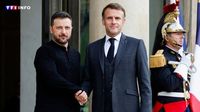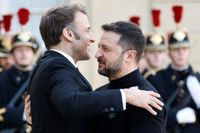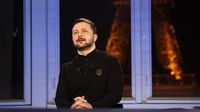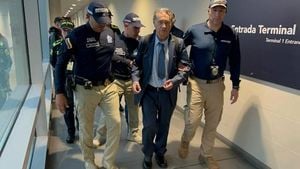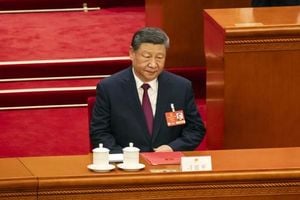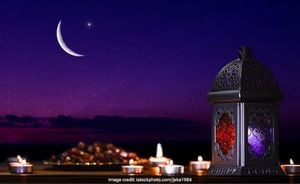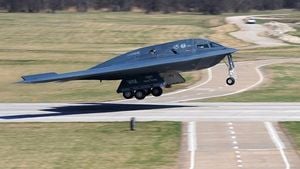On March 27, 2025, French President Emmanuel Macron is hosting leaders from nearly 30 countries allied with Ukraine in Paris for a summit aimed at finalizing security guarantees for Kiev. This gathering comes just a day after Ukrainian President Volodymyr Zelensky was received at the Elysee Palace, where he was promised a new military aid package from France worth two billion euros.
The summit, referred to as the "coalition of volunteers," is a culmination of political and military meetings organized by Paris and London since mid-February. According to the French presidency, it is time to draw operational conclusions regarding the ongoing conflict. Among the attendees are notable leaders such as British Prime Minister Keir Starmer, Italian Prime Minister Giorgia Meloni, German Chancellor Olaf Scholz, and Turkish Vice President Cevdet Yilmaz. NATO Secretary-General Mark Rutte and leaders from the European Union are also expected to participate.
In the lead-up to this summit, an agreement was announced following discussions in Saudi Arabia, facilitated by Washington, which included a truce in the Black Sea and a moratorium on strikes targeting energy sites. However, tensions remain high, as both Russian and Ukrainian authorities have accused each other of undermining this preliminary understanding. On March 27, the South Korean army reported that North Korea had deployed an additional 3,000 soldiers to support the Russian invasion, bringing the total number of North Korean troops assisting Russia to 14,000.
During a joint press conference with Zelensky, Macron stated that Russia's ongoing attacks on Ukraine demonstrate its commitment to warfare, asserting that it is "much too early" to consider lifting sanctions against Moscow. He emphasized the need to maintain pressure on Russia, asserting, "The Russia is playing for time; we must continue to exert pressure on them." Macron and Zelensky called for a total ceasefire of 30 days without preconditions, urging Moscow to comply.
Keir Starmer echoed these sentiments, declaring that Putin's promises are empty and urging for a serious approach to peace talks. The European Union and NATO countries are pushing to advance security guarantees for Ukraine, which includes providing military aid and forming a "force de reassurance" comprised of willing European nations. Macron described this approach as a "pacifist strategy" aimed at deterring further Russian aggression.
Reflecting on the evolving dynamics of the conflict, Zelensky expressed concern that Washington is too influenced by Russian propaganda. In an interview with France 2, he stated, "Today, very often, the United States finds itself under the influence of the Russian narrative," specifically criticizing Steve Witkoff, a U.S. envoy, for undermining European proposals.
As discussions continue, Zelensky emphasized the importance of a ceasefire in the Black Sea, noting that it is primarily beneficial for Russia. He stated, "We control the situation in the Black Sea," suggesting that a truce would serve Moscow's interests more than Ukraine's.
This summit in Paris marks Zelensky's second visit to France in three months, following his attendance at the reopening of Notre-Dame Cathedral in December 2024. The relationship between Zelensky and Macron has notably improved, with both leaders frequently communicating. Macron's commitment to bolstering military support for Ukraine has positioned him as a key ally, particularly in light of the growing distance between Ukraine and the U.S. under President Donald Trump.
Macron's recent announcement of an additional two billion euros in military aid includes a range of equipment such as anti-tank Milan missiles, Mica air defense missiles, Mistral ground-to-air defense systems, VAB armored vehicles, AMX-10 RC tanks, and drones. Zelensky expressed gratitude for this support, mentioning discussions about increasing the number of French Mirage fighter jets provided to Ukraine.
Despite the positive developments, experts caution against overestimating the depth of the Franco-Ukrainian partnership. While Macron has taken a firmer stance against Russia, some analysts argue that the lack of a clear peace plan raises concerns about the effectiveness of these diplomatic efforts. The ongoing negotiations between Russia and the U.S. have yielded a truce in the Black Sea, but the future of peace remains uncertain.
As leaders gather in Paris, the stakes are high. The outcome of this summit could significantly influence the trajectory of the conflict and the security landscape in Europe. Macron's leadership in this arena has earned him significant support among Ukrainians, with a recent poll indicating that 77% of Ukrainians hold a positive opinion of him. However, the path forward remains fraught with challenges, and the call for a united front against Russian aggression continues to resonate among allies.
In summary, the Paris summit represents a critical juncture in the ongoing conflict, with leaders aiming to solidify their commitment to Ukraine's security and explore avenues for lasting peace. As the situation unfolds, the international community watches closely, hoping for a resolution that will bring stability to the region.
